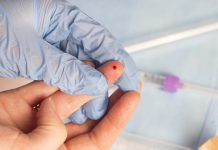Researchers at the University of Surrey are creating immune digital twins, virtual models of individual immune systems, to advance personalised medicine and deliver tailored treatments
The University of Surrey is part of a global initiative to develop digital twins of the immune system, virtual models of individual immune systems. This innovative approach aims to transform personalised medicine by predicting treatment responses and enabling therapies tailored to each patient’s unique biology.
How do digital twins support personalised medicine development?
Digital twins are virtual models that replicate real-world systems or processes. In medicine, immune digital twins simulate an individual’s immune system, enabling researchers and doctors to study how it responds to treatments without directly experimenting on the patient. By using real patient data, these digital replicas can predict treatment outcomes, identify the most effective therapies, and personalise care. Essentially, they act as a virtual mirror of a patient’s biology, helping advance personalised medicine and improve health outcomes.
In healthcare, digital twins are used in cardiovascular diagnostics and diabetes management, with systems like the artificial pancreas valuable in clinical practice.
Looking ahead, the Surrey team believes that immune digital twins could significantly enhance patient safety. By modelling not just individuals but also groups of patients, researchers can forecast how communities respond to vaccines, infections, or emerging therapies. This could support faster drug development, reduce healthcare costs, and improve patient safety by minimising adverse reactions. The long-term ambition is to integrate immune digital twins with other virtual models, such as those for the heart or metabolism, to create a comprehensive picture of human health. Such advances would represent a significant leap forward for personalised medicine worldwide, instilling confidence in the future of healthcare.
A global initiative involving esteemed experts
The Research Data Alliance Building Immune Digital Twins Working Group (RDA-BIDT WG) includes scientists from the University of Surrey. It is supported by the RDA TIGER (Research Data Alliance facilitation of Targeted International Working Groups for EOSC-related Research Solutions).
The group includes more than 100 experts from 22 countries and is led by Professor Anna Niarakis from the University of Toulouse, Centre for Integrative Biology, CNRS, France.
Developing an immune Digital Twin (IDT) is a complex task, as the human immune system is highly intricate and constantly adapts and responds. It is a challenge to accurately measure a patient’s immune state in real-time due to the lack of compatibility between different types of data and models. The BIDT WP, a collaborative effort that brings together immunologists, clinicians, computational biologists, engineers, and ethicists, is dedicated to overcoming these hurdles through a transdisciplinary approach.
Dr Yashwanth Subbannayya, Dean’s Research Fellow at the University of Surrey and member of the RDA-BIDT WG, said: “The immune system’s complexity and variability from person to person make it difficult to treat when things go wrong. By building a digital twin, we could create a virtual model of a patient’s immune system, allowing doctors and researchers to simulate how different drugs or treatments would work for that individual without ever risking harm.”











